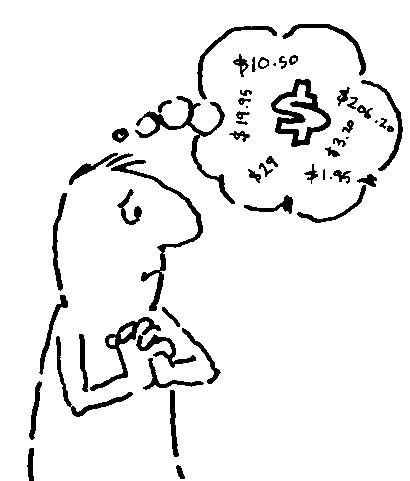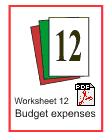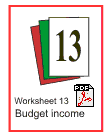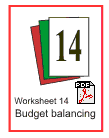- TOOL KITS
- A. The NEXT Step
- B. Promoting Independence
- C. Phone Apps
- D. Return to Work
- E. Motivational Interviewing
- F. Paediatric Brain Injury Rehabilitation Resources
- a) Introduction
- 0. Introduction
- 1. Working together promoting independence
- 2 . Using this kit
- b) Issues, goals, action
- 3. Identifying issues W
- 4. Setting goals W
- 5. Making goals happen W
- 6. Monitoring progress W
- c) Strategies Myself and my relationships
- 7. My behaviour's changed W
- 8. Thinking
- 9. Relationships W
- 10.Conversations
- Managing memory, money and time
- 11. Remembering information and messages
- 12. Finances and handling money W
- 13. Managing time W
- Household tasks
- 14. Food and shopping W
- 15. Food and meals W
- 16. House keeping
- 17. Laundry
- Getting around
- 18. Public transport W
- 19. Accessing the community
- Life tasks
- 20. Self care
- 21. Fitness
- 22. Leisure
- 23. Employment
- 24. Continue learning
- 25. Health and well-being
- Emergencies
- 26. Emergencies
12. Finances and money handling
- 12.0
Finances and money handling - 12.1 W
Developing a budge - 12.2
Account management - 12.3
Community money handling
I never seem to make ends meet. How do I know how much I can spend?

Living within a budget is a difficult thing to do! Working within a budget allows you to:
- identify what you are spending your money on
- identify how much money you have to spend
- save for special occasions like a holiday
- identify when your needs change.
To accurately work out your budget it is important to remember these irregular expenses.
Helpful hints
For two weeks before you sit to work out your budget, collect dockets and receipts for everything you purchase. This can help you get a more accurate idea of how much you are spending and what you are spending it on. Having an exercise book where you put the receipts and write down other expenses, keeps the information together for you to review. It is useful to work through your individual living expenses with someone who knows you. They may remember some expenses you have not included.
Practical exercise - expenses
To identify your weekly budget, you need to complete the Budget Planner - Expenses Worksheet 12.
There are four columns in Worksheet 12.
Column 1 identifies a variety of different expenses. You may not spend money on all these expenses and there may be others which aren't listed.
Column 2 identifies how much you pay for each expense.
Column 3 identifies how frequently you pay that expense. For example, you may do a grocery shop each week, but pay a telephone bill every three months.
Column 4 identifies how much you pay for each expense on a weekly basis. For example, your telephone bill may be $60 for three months. You would need to put aside $5 each week so you will have enough money to cover this expense when the bill comes in.
When you have completed Budget Planner- Expenses Worksheet 12, you will know how much money you spend on a weekly basis.
Practical exercise - income
To identify your weekly income, you need to complete the Budget Planner - Income Worksheet 13.
There are four columns in Worksheet 13.
Column 1 identifies where you receive your income from.
Column 2 identifies the amount of income you receive.
Column 3 identifies how often you receive this income.
Column 4 identifies how much money you receive per week.
When you have completed Budget Planner- Income Worksheet 13, you will know how much income you receive on a weekly basis.
Practical exercise - balancing your budget - income minus expenses
You need to know how much money you have left over each week. Worksheet 14 has detailed instructions on how to complete it.
Once you have completed Worksheet 14 you will know how much money you have left over each week
Gemma's experience
Gemma had been living on her own for three months. She received the disability support pension and received rental assistance. She asked the occupational therapist at the Brain Injury Rehabilitation Unit for assistance to develop a budget. Gemma said she always paid the rent but found it difficult to find money for food and public transport. She also stated she had not bought any clothes or had a social life because she couldn't afford it. Gemma and the occupational therapist went through the Expense Worksheet. You can see where Gemma's expenses were. If you look at Gemma's worksheets 12, 13 and 14 you can see Gemma was spending too much on presents for her nieces and nephews. When Gemma compared her expenses with her income, they didn't match up. Gemma was overspending. Gemma and the occupational therapist revised Gemma's expenses and allocated more money for food and less money under the category of lifestyle. Gemma's budget was made to balance. Now all Gemma had to do was stick to the new budget. Gemma had stuck with it when it was reviewed in four weeks.
How do I keep money aside for less regular expenses?
Having identified your budget it is important to keep money aside for those bigger and less frequent expenses. For example, presents, rent, telephone or electricity.
Helpful hints
One way to do this is to have two separate accounts. One account for savings to pay the less regular or planned expenses and the other for everyday ones.
To identify the funds you have available for everyday expenses, refer to your Budget Planner. Complete the following calculations using the amounts from the Balancing Account worksheet. Subtract your total expenses from the fortnightly/weekly income. This will tell you how much spare or unaccounted funds you have.
This money can be used as savings or it can be used for treats for yourself or another.
More helpful hints
Most financial institutions will divide your income into two accounts. The financial institution who has your account can provide you with more information.
If you have an everyday account, you can spend the money in this account without worrying about eating into your savings for planned expenses. If savings are in a separate account you will always have enough money for the less regular expenses.
EFTPOS cards can be either credit or debit. A credit card is where you have a prior arrangement with the bank to purchase something and then pay for it later, when the bank sends you a statement. Credit cards can be useful to make sure you always have access to money to buy something. Credit cards can be dangerous. People can forget to keep track of how much they put on their credit card and then can't pay for it when the bill comes in.
Debit cards allow you to pay using your savings card where EFTPOS is available. Debit cards are different from credit cards in that you can only use the money in your account. Debit cards are useful so you don't have to carry large amounts of cash with you.
If you find you are tempted to use your credit card or seem to always get a little bit of extra cash out when you are taking out rent money, you may benefit from organising direct debits from your account. Direct debits can be organised for rent payments, health fund benefits or gym memberships- the list is endless. This is one way you can save money. You will be less tempted to take money out of the bank because you will have less reason to be going to the bank. These expenses will be automatically withdrawn from your account.
It is important to remember all budgets need to be reviewed frequently. They should be checked monthly or three monthly to make sure your circumstances, expenses and needs have not changed.
Sticking to a budget is hard work. Sometimes it is easier to manage with assistance from others. Assistance can be from family or an independent Financial Management Organisation.
Tessa's story
Tessa lived by herself before her car accident. The accident happened on her way to work and she was continuing to receive her pay through workers compensation. She wanted to return to living by herself after she left hospital. Tessa had been on weekend leave and realised she had problems managing her money. She found she spent money too easily on non-essential items. She couldn't make ends meet between pays. Tessa made a list of things she would need to buy before she was able to go home. The list was long and Tessa found that no matter how hard she tried she kept spending.
Tessa had no family who could support her in managing her money when she left hospital. The occupational therapist spoke with Tessa about applying for an Estate Manager with the Office of the Protective Commissioner. It was explained this person would work with her to manage her money and make sure she always had enough money to pay for food and rent. Tessa agreed and an application to the Protective Office for an Estate Manager was made. Tessa and the occupational therapist attended a hearing at the Guardianship Tribunal. A decision was made that Tessa would be appointed an Estate Manager.
Tessa met with her Estate Manager and strategies were organised to make sure she had food and rent money. The Estate Manager organised for Tessa's rent to be paid by direct debit from her savings account on the day her pay entered her account. He also organised for Tessa to have a food account at the local Woolworths supermarket. She had a weekly budget of $40. The Estate Manager forwarded $50 a week into an account Tessa could access for spending. She received $25 on Monday and another $25 on Friday. When Tessa needed extra money she would ask her Estate Manager for an advance. He put the remainder of Tessa's money into a savings account she could access for birthday presents or clothes. Tessa and the Estate Manager developed a good working relationship and Tessa never had problems making ends meet again
How can I keep track of my expense accounts
It is difficult to keep track of household and personal expense accounts. Forgetting to pay a bill may result in:
- late fees for overdue fines
- having electricity or water stopped
- being evicted from your rental property
- having items repossessed.
Managing expenses depends upon three things:
1. Keeping expense accounts in one place
2. Writing on a calendar or in a diary when the payments are due
3. Keeping a record of receipts when the account has been paid.
1. Keeping expense accounts in one place
Placing all expense accounts in one place will stop you from losing them. Developing a routine where you bring the mail in, open it and store it in one spot, is the first step.
Helpful hints
To keep it in the one spot, you may choose to:
- Use two large envelopes. One titled "accounts to be paid" and the other "accounts paid".
- Have two drawers. One for accounts to be paid and the other for accounts paid.
- Have two manila folders titled as above.
- An expanding file.
- A notice board where you pin the expense account until you have paid it.
- A spot on your fridge near your whiteboard, with a reminder note on your whiteboard. Always use one spot- and make sure it is the same spot each time!!!
2. Writing on a calendar or in a diary when the payments are due
Once you open your mail, you need to write down in your diary or on a wall calendar:
- when the bill is to be paid
- how much is to be paid
- and where it is to be paid.
It is then up to you to look at your calendar or in your diary on a daily basis and plan to pay the bill before it is overdue. Write on your calendar or in your diary when you are planning to do it. If you can, plan to pay it a week in advance. This means that if for some reason you are unable to pay for it on that day, you will still have time to pay it on another day before the due date.
Helpful hints
Other helpful steps are to:
• underline how much the bill is for, when it is due and where it is to be or
3. Keeping a record of receipts when the account has been paid
You may decide to pay your bill by cash, cheque or over the telephone using a credit card. When you pay your expense account you will be provided with a receipt or a receipt number. It is important to write this number down on the bill itself or attach the receipt to the bill.
Helpful hints
It is important to keep paid bills and receipts for future reference. This could save you some hassle if someone queries if you have paid the account. It is handy to keep paid bills in one place. Some suggestions may be:
- In an expanding file. You can have a section labeled telephone, electricity, and rent.
- In a manila folder or large envelope or an expanding file. You can keep all the information in one spot. It is useful to have different folders for different expenses.
Once you have paid the expense, tick or cross off the entry in your diary or write it on your calendar so you know you have paid it. Nobody wants to pay bills twice!
Gemma's experience
Gemma uses a notice board to pin up her expense accounts. The notice board is in her kitchen and above the special spot where she keeps her handbag. She keeps them there because she has to look at the board before she leaves the house. Gemma's whiteboard and diary are also in the kitchen so that she can look at all three to see what she has to do. She writes this in her diary and takes the necessary bill before she leaves the house. When she returns from paying the bill, she stores all the receipts and paid accounts in an expanding file. The expanding file has an index so she knows where to place them in the expanding file. There are spots for the telephone bill, the electricity bill, etc. Gemma files it into the correct slot and can then look at it in the future if she has to. This helps her when she is doing her budget.
Are there tips for managing money in the community?
When out in the community, you will have to handle money, for example, paying for items or food or paying for transport. You may even need to get money from an ATM machine to do this.
Here are some handy hints when handling money.
How can I safely handle money in the community?
Helpful hints
When paying for things, you should ensure that you have enough money and that when it comes time to pay for items, you give the cashier the appropriate money, for example, not too little, not too much.
• Don't show people how much money you have, especially if you are carrying a lot of money for some reason.
• If you can, try and work out how much change you should receive when you pay for things. This will help if the cashier makes a mistake.
• Make sure you get a receipt for the money you pay.
• Try to keep a small amount of change on you at all times. It may help if you get hungry or need to make a telephone call.
• If you are in possession of a large amount of money and you don't need to be, go to your bank and deposit it into your bank account. This is safer than carrying it on your person.
• If you have withdrawn a large sum of money to pay for a bill or your rent, make sure you go directly to pay the account. You don't want to be robbed or tempted to spend the money.
How do I use an ATM?
Using an ATM:
Step 1: Find the appropriate card and then find the appropriate corresponding ATM machine. Most ATM machines have pictures of the different cards that can be used at that machine.
Step 2: Enter the card into the machine as the machine indicates. There will be a picture above where you insert your card that tells you which way to put it in.
Step 3: Enter your PIN number when the ATM prompts you to.
Step 4: Follow the instructions the machine gives you. It will depend on what you want to do, for example, withdraw money or find out your account balance.
Step 5: When you have finished, the machine will return your card. Take this and place it immediately into your wallet where you normally place it.
Step 6: Next if you are withdrawing money, it will appear from the machine. Get this and immediately place it into a safe place in your wallet.
Step 7: The machine will then give you a receipt of your transaction if you have asked for one. This usually has an account balance on it stating how much money you have left in your account. Don't forget to get this and look at it to make sure your transaction was correct. You can also keep these as a way to keep track of how much money you have in the bank. Or you can throw it in the bin.
Remember that your PIN number is the access code to your account. Do not keep the number written down with your card because if someone steals your wallet, they can have access to your money. Do not tell anyone your PIN number as they may access your account. If your PIN number is with your key card and you lose your key card you will not be reimbursed by the bank for any money stolen.
I cannot remember my PIN number without writing it down!
If you cannot remember your PIN number, go to your bank and ask to change it to a number or word that you may be able to remember, for example, your birthday, your middle name or someone's name who is close to you. The numbers can then be used to spell out your special code word- your PIN number.
Frank's experience
Frank shared a house with friends prior to his accident. He frequently allowed mates to borrow money and stated he always got it back. After Frank left hospital his friends still wanted to borrow money. Frank lent it, however wasn't able to remember who he lent it to and how much he lent. Frank was now on the pension and found that he was running out of money sooner.
Frank's case manager raised these issues on several occasions. Frank complained of having no food and stated he had lent his money to friends. They weren't paying him back. Frank was referred to the occupational therapist who worked with Frank to come up with some strategies. Frank wanted to be able to lend his friends money. So a notebook was set up where Frank recorded who he lent the money to, how much was lent, when it was to be repaid and when it was repaid. Frank kept this in his shirt pocket. Frank did not seem to think it was an issue if he didn't have any food. So the focus was to keep track of Frank's loans to friends.
Who can help me with finances and money handling?
- The occupational therapists at your local brain injury unit.
- A support worker can help you work out your budget.
If you know you can't stick to a budget you can call the Brain Injury Rehabilitation Unit and speak to your case manager, occupational therapist or social worker. These people can help you trial different strategies or put you in contact with people who manage other people's finances for a job. For example,
- The Office of the Protective Commissioner
- AMP Financial Managers.



